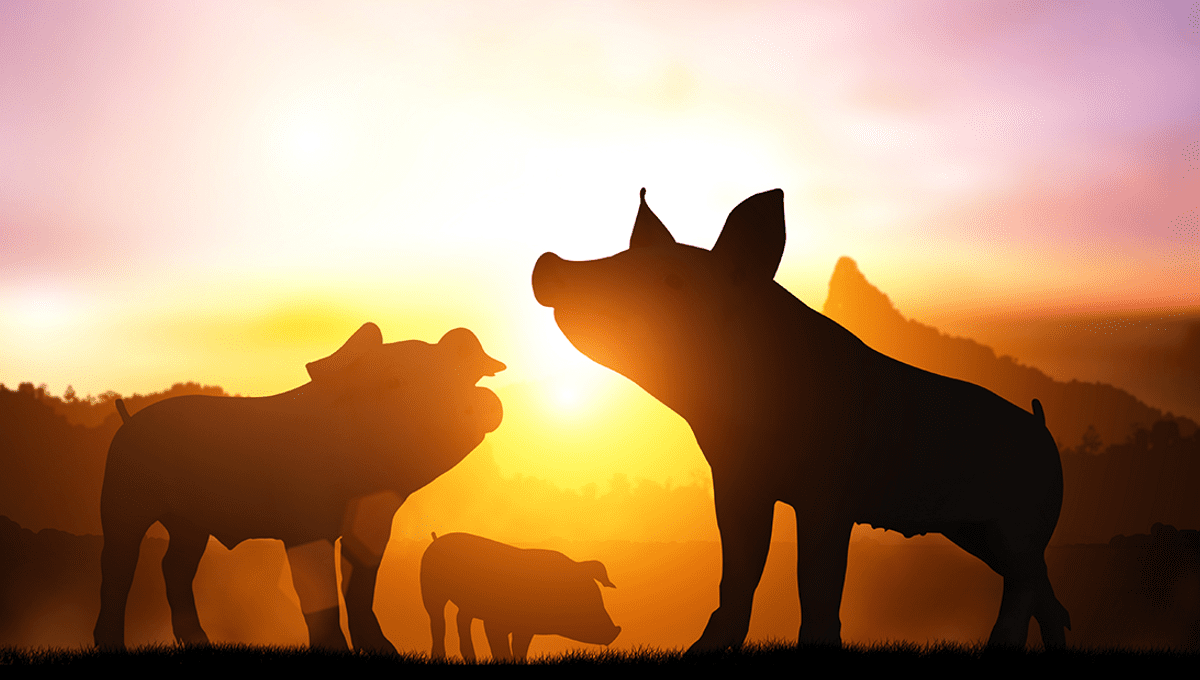
In mammalian social species, conflict resolution forms a big part of life. A study in Italy has explored the role of a third party in the aftermath of a fight – in pigs. A bystander pig can intervene after two other pigs have been fighting, the researchers found.
The effect of the bystander is either to reduce the number of attacks by the aggressor toward the victim. Alternatively, the bystander can help reduce the anxiety of the victim after the fight, depending on whether the bystander approaches the victim or the aggressor after the conflict.
The study involved 104 semi-free-ranging domestic pigs (Sus scrofa). The study authors watched them during times of fighting and for three minutes during the post-conflict resolution period. Aggressive behaviors were found to include pushing, biting, head-knocking, and lifting the victim pig. By contrast, the reconciliation behaviors included nose-to-nose contact, sitting in physical contact, or resting their heads on each other.
When the team watched the conflict end with help from a bystander pig, they found differences in behaviors depending on who the bystander approached after the end of the fight. If the bystander went to the victim pig, the number of aggressive behaviors did not change – but the anxiety of the victim pig was significantly lowered. If the bystander went to the aggressor pig after the fight, the number of aggressive behaviors directed towards the victim pig was reduced.
Bystander pigs were more likely to intervene after the fights if the pigs involved – either the aggressor or the victim – were closely related to the bystander. The authors suggest that the pigs support more closely related individuals.
The team also found that both the aggressor pig and the victim were equally likely to initiate reconciliation behaviors after fighting, but that the proportion of reconciliations was higher in pigs that were less closely related.
It is thought that fighting between closely related pigs, full or half-siblings, would cause less damage to the social group because of the secureness of the bond. However, pigs that fight that are not closely related invest more time in reconciliation behaviors to ensure that they still have social support within the group.
The team also suggests that the bystander pigs are aware of the social distress caused to the victim of a conflict, and have elements of social appraisal that allow them to judge how badly the victim pig has been affected. This is the latest study in understanding the emotional intelligence of these animals in a social setting.
The paper is published in Animal Cognition.
Source Link: Porcine Pacifists Help Break Up Fights Between Fellow Pigs